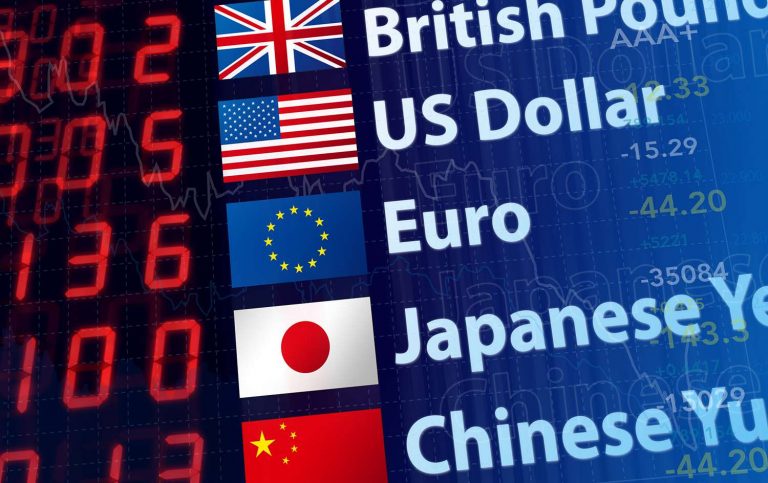
Online financial trading is a giant industry that depends on modern technologies the most. Without proper computers and software, coupled with a fast internet connection, it is impossible to provide modern financial services. Technologies also enable traders and users to use financial services worldwide, no matter where they are located, and recent trends for AI and automation will only increase our dependence on smart machines. Let’s overview and explain all the crucial technologies that power our modern financial trading industry to gauge their importance.
Trading platforms: the backbone of online trading
To access financial exchanges and buy and sell assets, users need technology that connects them to these exchanges. Such software are trading platforms and several advanced platforms power most modern online trading. The most prominent platforms include MetaTrader 4 &5, cTrader, TradingView, NinjaTrader, and so on. Without knowing how to use modern platforms, the profitability of FX trading online will suffer greatly. This software enables traders worldwide to analyze markets, trade financial exchanges, and stay ahead of the curve. MT4, MT5, and cTrader are used mainly for Forex trading and allow stocks, FX pairs, metals, and indices. TradingView is an online trading platform that supports many different asset classes and comes with a large database of indicators both built-in and published by other users. NinjaTrader is a dedicated trading platform for futures trading which requires different features. These platforms are super popular among traders as they allow custom indicators and automated trading systems or Expert Advisors (EAs). Proprietary trading firms have become popular lately and developers have started working to develop dedicated trading platforms. Popular platforms include DXTrade, TradeLocker, Match-Trader, and so on. This tech supports everything including systems with printable receipt invoice templates.
Algorithmic Trading and AI-Powered Strategies
AI has become an integral part of the modern online trading industry, with many platforms integrating it into their interface and brokers starting to adopt AI for chatbots and automated trading purposes. AI and machine learning algorithms allow traders to enhance execution by automating decision-making based on data patterns. However, AI algorithms are not cheap, and they are mostly deployed by large hedge funds in high-frequency trading (HFT) robots. HFT and AI-driven bots can execute trades at lightning speed which is impossible for human traders. The Algorithmic trading market is growing fast and will reach almost 3.1 billion USD in 2023. Despite being highly accurate and having the potential to rescue human error, algorithms also carry risks like market volatility and system failures. Any bug can seriously impact final trading earnings and this is why algorithms are often deployed by large companies and rarely by retail traders.
APIs and Software Integration in Online Trading
APIs or application programming interfaces enable seamless connectivity between traders, brokers, and liquidity providers or exchanges. Popular APIs facilitate real-time data access and trade execution, which are widely used by developers to connect their Python trading bots with exchange data and make profits. Custom-built software helps traders manage their risks, automate trades, and optimize their strategies. APIs are especially powerful in crypto trading where many AI trading robots are developed using Python. Trading robots later use API calls with top executives to connect their robots with the exchange’s live price data and send trading orders for execution.
Blockchain and Security in Online Trading
Blockchain is a new addition to the trading industry and crypto traders are trying to make profits by speculating on digital currencies. This technology is new and has great potential to enhance trading transparency as it provides immutable transaction records. Cryptographic security and decentralized finance (DeFi) solutions strengthen security and decentralize trading. These innovations prevent fraud, offer unparalleled transparency, ensure safer transactions, and build a trustless financial ecosystem.
Big Data and Analytics
Data analytics enables hedge funds to form predictive models using big data and attain accurate market forecasts. Sentiment analysis tools measure investor behavior and real-time market data feeds enable fast decision-making. Advanced visualization tools also help these funds to interpret trends effectively.
Big data analytics requires serious computing power and is mostly implemented by equity funds, hedge funds, and large financial institutions that have enough financial resources to invest.
The future of trading technology
Quantum computing is the next step in trading technologies. Quantum computers are orders of magnitude faster than traditional computers and neural networks. Machine learning algorithms run on them will analyze big data not only much faster but could possibly produce novel trading strategies and insights which was impossible before. The AI-driven personal assistants will also refine strategy execution while decentralized platforms will continue evolving and will reduce reliance on intermediaries and enhance overall market accessibility.

